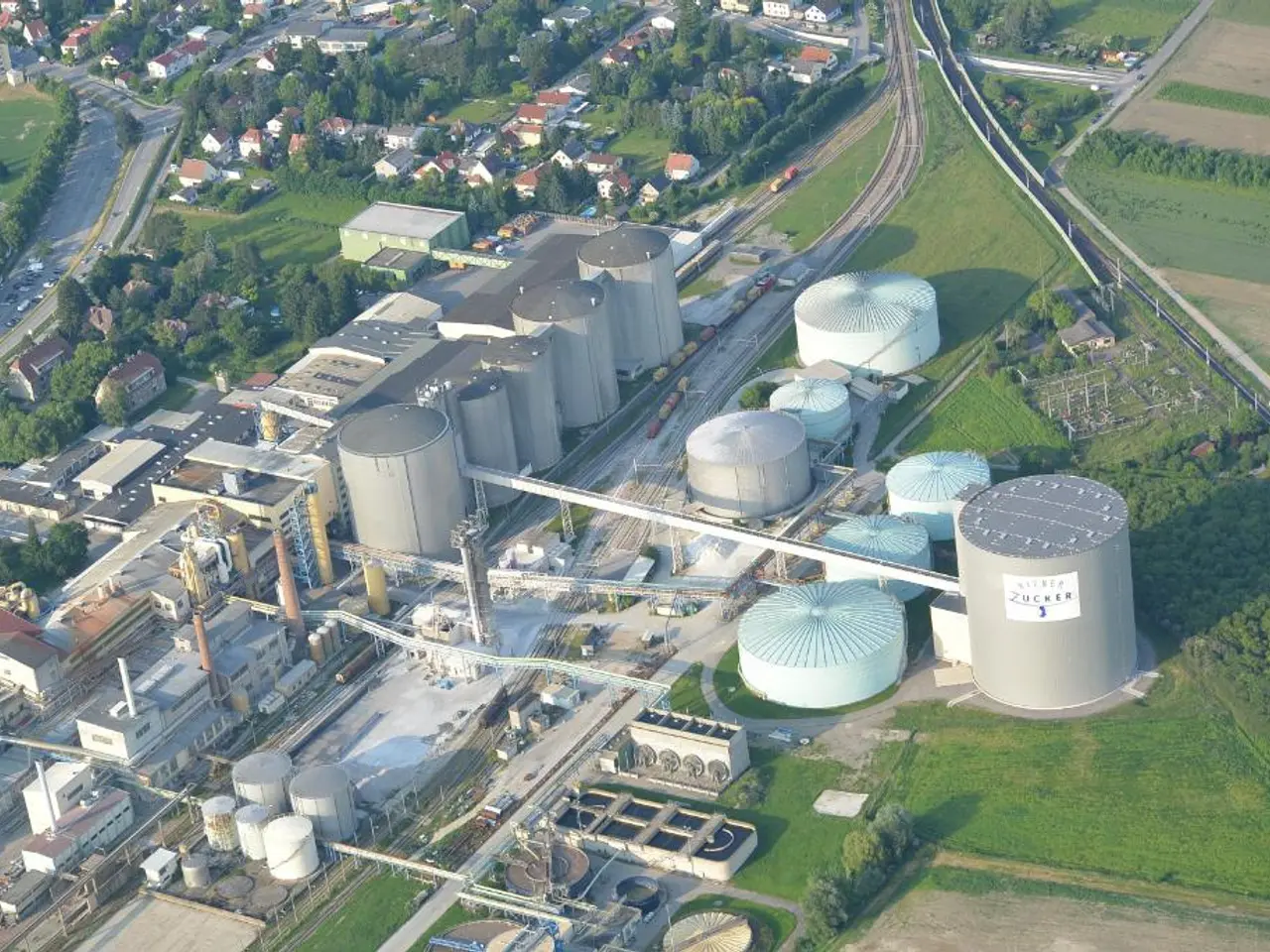Challenges pertain to energy usage, planning approvals, and investment in Britain's planned artificial intelligence data centers.
UK Government Pushes Ahead with AI Data Centre Expansion
The United Kingdom is making significant strides in its AI infrastructure development, with a focus on clean energy solutions and sustainability. The government's ambitious plans aim to more than triple the current AI-capable data centre capacity by 2030, reaching 6 GW[1].
AI Growth Zones
To fast-track AI data centre deployment, the government is designating specific geographic areas known as AI Growth Zones. These zones will offer dedicated energy access, with each zone aiming for at least 500 MW capacity, some exceeding 1 GW by 2030[1]. The first pilot zone is at Culham, Oxfordshire, chosen for its high-capacity grid connection and proximity to a skilled workforce[2].
Energy Challenges
Data centres currently consume around 1-2% of the UK's electricity, with rapid increases expected due to AI. The government recognizes the fundamental difficulty posed by energy prices, which are approximately four times higher than in the US, affecting competitiveness[4].
Energy Council
To address these challenges, the UK government has formed the AI Energy Council, co-chaired by the Technology Secretary and the Energy Secretary. This council brings together industry leaders to guide investment and design energy strategies that focus on clean energy, despite the constraints[2].
Large AI Data Centre Projects
The government is planning massive AI data centre campuses at sites like Teesworks in Northeast England. These campuses will be integrated with industrial and research ecosystems, granted fast-track planning and dedicated energy access[3]. However, environmental concerns around energy and water usage remain under scrutiny, and coordination with other energy projects such as blue hydrogen and carbon capture efforts is ongoing.
Industry Energy Trends
Major tech companies globally are securing low-carbon energy sources, often through direct partnerships with nuclear and clean energy providers. This strategic shift is reflected in the UK government's AI infrastructure plans, which encourage similar efforts domestically[4].
In summary, the UK government's strategy involves establishing AI-focused Growth Zones with dedicated energy connections, forming an AI Energy Council to focus on clean energy and infrastructure innovation, and engaging with both public and private partners to overcome the challenges of high energy costs and capacity constraints inherent in hosting large AI workloads[1][2][3][4].
However, the road ahead is not without challenges. Energy is a significant concern in the UK's AI strategy due to high energy prices and aspirational net-zero targets that have been labeled as unrealistic. Most bit barn markets in the region are grappling with stringent sustainability requirements, land, and power constraints, driving up costs, extending project timelines, and creating uncertainty for operators and investors, according to Cushman & Wakefield.
[1] Department for Science, Innovation and Technology (DSIT) [2] Pillsbury Winthrop Shaw Pittman report [3] AI Opportunities Action Plan, announced in January [4] Various industry reports and announcements
- The UK government's AI Data Centre expansion aims to increase capacity by more than triple, reaching 6 GW, with specific geographic areas known as AI Growth Zones offering dedicated energy access and each zone aiming for at least 500 MW capacity.
- Large AI Data Centre projects, such as the ones at Teesworks in Northeast England, will be integrated with industrial and research ecosystems, have fast-track planning, and dedicated energy access, as part of the UK government's AI infrastructure plans.
- The UK government has formed the AI Energy Council, co-chaired by the Technology Secretary and the Energy Secretary, to address energy challenges in the industry, focusing on clean energy and infrastructure innovation.
- Major tech companies are securing low-carbon energy sources and this strategic shift is reflected in the UK government's AI infrastructure plans, which encourage similar efforts domestically.
- Despite the challenges of high energy prices and aspirational net-zero targets, the UK's AI strategy involves engaging with both public and private partners to overcome issues such as stringent sustainability requirements, land, and power constraints.




